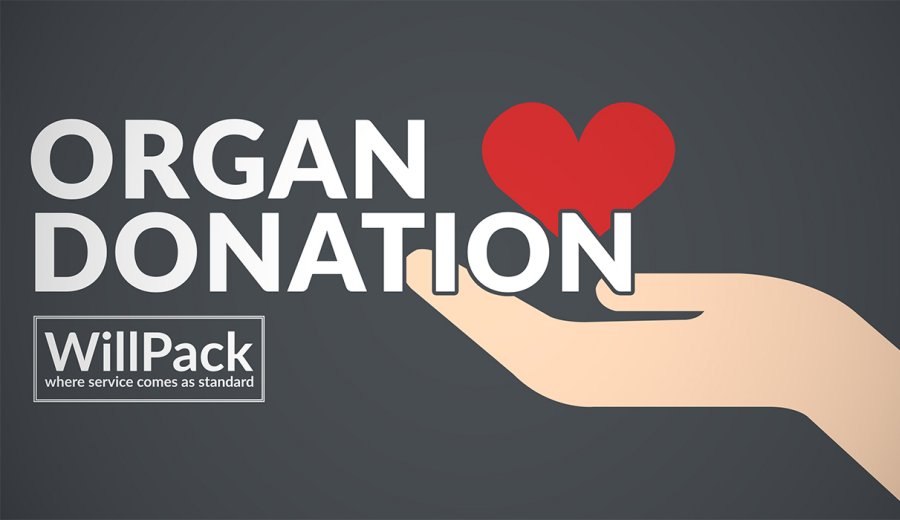The Organ Donation (Deemed Consent) Bill has passed its final hurdle in Parliament and is now waiting for a date to receive Royal Assent. Due to this, this is now a good time to remind you what the current opt-in rules for organ donation are, and what the new opt-out rules will be.
There currently is not a date set for the Royal Assent of the Bill, or when the new rules will come into effect, but it is expected that the new rules will come into effect in Spring 2020 and there will be grace period between the royal assent and when the rules come into effect to allow the NHS to prepare for the change and allow for public information.
The new rules only cover England. Wales has operated an opt-out system for a number of years. Northern Ireland and Scotland currently have opt-in systems, but Scotland is likely to change to an opt-out system within the next few years.
The current rules: opt-in
Until the new rules come into effect, England has an opt-in system of organ donation. A person is deemed as not wanting to donate their organs, unless they join the NHS organ donor register. A statement is commonly included in the will to state that a person wants to donor their organs, but this is simply a wish and is not legally binding.
It was highly advisable to ensure that a person discusses their wishes with their family. Medical professionals would need to have discussions with family members before deciding if organs are safe for the transplant. If the family are not aware and are obstructive, this could lead to organs not being donated.
It is also possible to nominate representatives to make decisions on organ donation after death. To do this, a person would need to complete an ‘Appointing a Representative Form’. Up to two representatives can be named and these people will be contacted after death and be asked whether the deceased’s organs should be donated. This is an option where a person knows their family will likely object to their organs being donated after they have died.
News rules: opt-out
Under the new rules, the default position is changed. A person is instead presumed to be an organ donor unless they have opted out during their lifetime. If a person wishes to opt-out, this decision should be recorded on the NHS organ donor register.
If a person wishes to reinforce their wish to donate their organs, they can still register on the NHS organ donor register as a donor.
If a person wishes to donate some but not all of their organs, they should register as a donor and select which organs they do not wish to donate.
A safeguard is included in the new rules that allows loved ones of the deceased to make known any unregistered objections to organ donation that the deceased may have had. Family members still therefore have a final decision on whether organs will be donated. It is still possible to appoint a representative to make the decision on the deceased’s behalf.
Terms in the will could therefore have some use here but there is the risk that this objection in the will may not be found until after organs have been donated.
Advice for clients
Many clients will be unaware of both the current and new rules. When taking will instructions from clients, it is advisable to discuss their wishes regarding organ donation with them to ensure that they are aware of what the rules are, and what steps they can take to ensure their wishes are followed.
If they wish to donate their organs, it is advisable that they state this on the NHS organ donor register in case they die before the new rules come into effect. Terms can be included in the will to reinforce wishes, but this will not have any binding effect.
If they wish to donate some but not all their organs, they should state this on the NHS organ donor register. This will ensure their wishes are followed both under the current rules, and under the new rules.
If a person believes their family will object to organ donation, it is advisable that they name representatives to be contacted after their death who will honour their wishes.
If they do not wish to donate their organs, they should state this on the NHS organ donor register to ensure that they are not presumed to be an organ donor under the new rules. A statement in the will could be included, and this objection may be raised under the safeguard, however there is the risk that this is not found until after organs have been donated.
In all circumstances, they should ensure that their loved ones are aware of their wishes.
Should you wish to provide your clients with more information on donating organs, links are provided to the NHS organ donor register website and the Appointing a Representative Form.
Donation for Medical Research
Changes to the law do not relate to donating for medical research. This area is regulated by the Human Tissue Authority (HTA), who state that those wishing to donate organs for such purposes should contact a licensed medical school to make these arrangements. Should you wish to provide clients with more information on medical donation, links are provided to the HTA’s website along with their list of licensed medical schools.
If clients have already made arrangements for medical donation, any written agreements could be specifically mentioned in the will should the clients wish.
Where a client wishes for both transplant and medical donations, depending on what the clients wish to donate for research purposes, it may be the case that the medical school cannot accept a body that has already donated organs. They should discuss this when making arrangements for medical research to ensure there are no conflicts.


One comment
David
8 March 2019 at 10:28 am
good piece
Comments are closed.